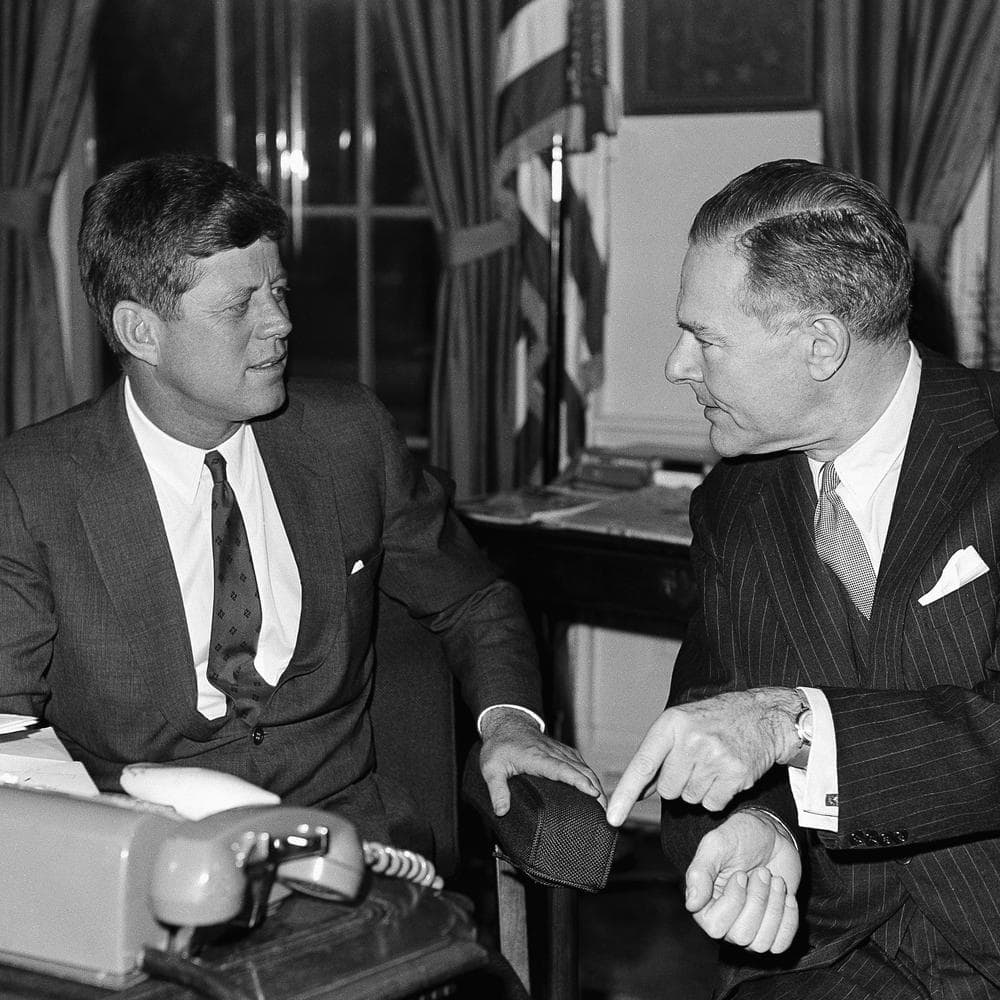Advertisement
How The GOP Gave Way To The Kennedy Political Dynasty
If one is of a certain conservative Republican political bent, the name Kennedy evokes the same kind of emotional response that Boston sports fans usually reserve for the likes of Lebron James and Alex Rodriquez: intense hostility and irrational hatred. Yet, 60 years ago, Republican Party conservatives played a decisive role in creating the very thing they have since come to gnash their teeth over, the Kennedy family political dynasty.
In 1952, John F. Kennedy, then a brash and inexperienced Democratic congressman, defeated popular incumbent Republican Henry Cabot Lodge Jr. to become only the third Democrat in history to win a U.S. Senate seat from Massachusetts. The victory paved the way for Kennedy’s successful White House run in 1960, and opened the door for his brothers Robert and Edward to pursue future Senate seats and presidential campaigns. If he had lost in 1952, none of this would have been possible.
So how did Kennedy do it? According to many of his supporters, he won by outworking and outhustling his Republican opponent, by knocking on more doors, attending more political rallies, and generally ingratiating himself with the electorate.

Retail politics aside, there is another, less well-known explanation for this political outcome. Heading into the 1952 election year, Lodge became deeply involved in efforts to see former World War II Supreme Allied Commander and Columbia University head Dwight D. Eisenhower become the Republican nominee for president. A moderate by nature and temperament, Lodge felt that the Republican Party had lurched too far to the right in the 1930’s and 1940’s during the liberal Democratic administrations of Franklin D. Roosevelt and Harry S. Truman.
He believed the Republicans needed a credible middle-of-the-road alternative like Eisenhower to regain national prominence. Otherwise, it risked long term irrelevance, or worse. As he revealed in his 1973 memoir "The Storm Has Many Eyes," Lodge feared the GOP would “either disintegrate completely or shrink into a small minority of extreme reactionaries and, in the South, a crew of patronage-hungry professionals.”
To put Ike over the top, Lodge personally took charge of Eisenhower’s campaign and engineered a stunning political upset at the Republican National Convention. He accused party conservatives backing the front runner, Ohio Sen. Robert A. Taft, of “stealing” delegates. Taft, a prominent isolationist and leader of the GOP’s right wing in Congress, had no effective political counter to this charge. Eisenhower easily chalked up a first ballot victory and went on to win the presidency in a landslide over Democrat Adlai E. Stevenson.
GOP conservatives never forgave Lodge for what they regarded as his personal treachery against Taft. They sought political revenge, and the best way to deliver it was by abandoning him at the polls in Massachusetts and voting for Kennedy. “It seems likely,” wrote a conservative to Lodge, “that a majority of Taft supporters will not help you, as your chief occupation for some years has been to destroy their interest…You have fallen further than Lucifer.”
Basil Brewer, an influential New Bedford newspaper publisher and chairman of the Taft-for-President state committee, was equally vociferous in his condemnation. He publicly blasted Lodge for allegedly bolting his party with “his votes for the Truman socialistic New Deal.” Owing to the prevailing Red Scare attitudes of the day, he also unfairly accused Lodge of being soft on Communism. Kennedy, he wrote in the pages of his newspaper, “has shown … a surer grasp of the problems and personalities involved in the nation’s struggle for survival than his opponent, Sen. Henry Cabot Lodge Jr.”
Come Election Day, the heavy hand of Brewer and his fellow state conservatives was felt at the ballot box. Lodge lost to Kennedy in a close race. “You see,” Lodge later revealed in a JFK Library oral history, “Brewer could make the difference of 35,000 votes. That’s what he did. I was beaten by 70,000. If 35,000 had gone the other way, I’d have been in the clear.”
A review of election results confirms this contention. When placed alongside the statewide vote of successful Republican gubernatorial candidate Christian Herter that year, Lodge’s tally comes up 34,708 votes short. Add to this Lodge’s under-performance in traditional conservative Republican strongholds and it’s clear that he was adversely affected by these defections. “I felt rather like a man who has just been hit by a truck,” he wrote afterward.
Interestingly, that has been a common reaction of conservatives running for office against a Kennedy in Massachusetts ever since.
This program aired on October 9, 2012. The audio for this program is not available.